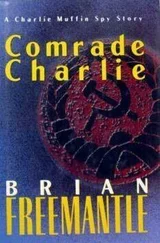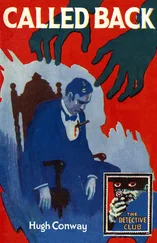Albert Edwards - Comrade Yetta
Здесь есть возможность читать онлайн «Albert Edwards - Comrade Yetta» — ознакомительный отрывок электронной книги совершенно бесплатно, а после прочтения отрывка купить полную версию. В некоторых случаях можно слушать аудио, скачать через торрент в формате fb2 и присутствует краткое содержание. Жанр: foreign_antique, foreign_prose, foreign_sf, на английском языке. Описание произведения, (предисловие) а так же отзывы посетителей доступны на портале библиотеки ЛибКат.
- Название:Comrade Yetta
- Автор:
- Жанр:
- Год:неизвестен
- ISBN:нет данных
- Рейтинг книги:4 / 5. Голосов: 1
-
Избранное:Добавить в избранное
- Отзывы:
-
Ваша оценка:
- 80
- 1
- 2
- 3
- 4
- 5
Comrade Yetta: краткое содержание, описание и аннотация
Предлагаем к чтению аннотацию, описание, краткое содержание или предисловие (зависит от того, что написал сам автор книги «Comrade Yetta»). Если вы не нашли необходимую информацию о книге — напишите в комментариях, мы постараемся отыскать её.
Comrade Yetta — читать онлайн ознакомительный отрывок
Ниже представлен текст книги, разбитый по страницам. Система сохранения места последней прочитанной страницы, позволяет с удобством читать онлайн бесплатно книгу «Comrade Yetta», без необходимости каждый раз заново искать на чём Вы остановились. Поставьте закладку, и сможете в любой момент перейти на страницу, на которой закончили чтение.
Интервал:
Закладка:
What might be called "the normal mother instinct" had been denied her. Her woman's nature had turned into an ardent desire to "mother" the race. The babes who die unborn, those who are poisoned by bad milk, who wither up from bad air, whose growth is stunted by bad food – all the sad little children of the poor – were her own brood. She wrote rarely to her two blood sisters – she was the big sister of all the girls who are alone.
Her parents were entirely out of sympathy with her interest in working people. Principally to escape their ceaseless nagging, she had come East. For several years she had been the head of the Woman's Trade Union League. Her gentle breeding made her successful with the wealthy ladies on whom the League depended for support, the working girls idolized her, the rather rough men of the Central Federated Union had come to recognize that she never got up in meeting unless she had something to say. And the bosses complimented her ability by hating her cordially.
Most of the young men who tried to court her – and there was a constant stream of them, for she was a very attractive woman – fared badly. She was distressingly illusive. Her intellect was so lively that it was hard to admire her manifold charms. She wanted the people who talked to her to think. And she checked sentimentality with scornful laughter.
Things were further complicated for her would-be suitors by the fact that Mabel, when she was not very busy, was always accompanied by her room-mate Eleanor Mead. Eleanor did not look like a formidable duenna. She was of a pure pre-Raphaelite type. By profession she was an interior decorator, and her business card said, "Formerly with Liberty – Avenue de l'Opera, Paris." She carefully cultivated the appearance of an Esthete. She nearly always dressed in rich greens and old golds and was never truly happy except during the limited season when she could wear fresh daffodils in her girdle. She was clever at her work and gained a very good income, which she augmented by fashionable entertainments where she lectured in French on subjects of Art and sometimes gave mildly dramatic readings of Maeterlinck and other French mystics.
Most men found her style of beauty too watery. But one of the "Younger Choir" had taken her as his Muse and had dedicated a string of Petrarchian sonnets to her. Eleanor had been rather flattered by the tribute until the unlucky bard had been forced by the exigencies of his rhyme to say that she had "eyes of sapphire." People had begun to make sport of her "sapphire" eyes – they did have a rather washed-out look – and had begun to call her "Sapphire." Most of Mabel's lovers shortened it disrespectfully to "Saph." She had given this aspiring versifier the sack, and his long hair was no longer to be seen in the highly decorated apartment on Washington Square, South.
Although her appearance was not at all dreadful, she was feared and hated by all Mabel's admirers. It was impossible to call on Miss Train – it was necessary to call on both of them. Without any open discourtesy, with a well-bred effort to hide her jealousy, Eleanor made the courting of her friend a hideous ordeal. Most aspirants dropped out of the race after a very few calls. But for three years Longman had held on. It had not taken him long to know what was the matter with him, and after two unsuccessful efforts to see Mabel alone and tell her about it, he went one night to the flat with grim resolution.
"Miss Mead," he said abruptly on entering, "I've got something very important I want to say to Miss Train. I want to ask her to marry me. Will you be so kind – ?"
He opened the door leading into the dining-room. His manner had been irresistible. And Eleanor with her head in the air had sailed out past him. He shut the door carefully. All the evening long, Eleanor knelt down outside it, with her ear glued to the keyhole. But she heard nothing to distress her.
Longman got no satisfaction. Mabel had rejected his offer as decisively as possible. But he had refused to be discouraged. The third time that he forced a proposal on her, it had made her angry and she had said that she did not care to see him again. A few days later she received a very humble letter from him. He pleaded for a chance to be her friend, and solemnly promised not to say a word of love for six months. She had not answered it, but the next Sunday he came to the flat for tea. They had drifted into a close but unsound friendship. Eleanor's dislike for him was so evident – she maintained that the way he had banished her to the dining-room proved that he was no gentleman – that he very rarely went to their apartment. But on every possible occasion he met Mabel outside. The people who saw him at her side, night after night at labor meetings, assumed that they were engaged. This added intimacy only whetted Longman's love. From bodyguard he fell to the position of slave. He ran errands for her.
With the masculine attitude towards such matters he did not believe that she would accept such untiring service if there was no hope.
When at the end of the stipulated six months she refused him again, – just as coldly as at first, – it was a bitter surprise to him. If a man had acted so, Longman would have unhesitatingly called him a cad.
He went away to the mountains to think it out. In a week he was back, proposing again. Once more she became angry. When she said "no," she meant "no." She did not want to marry him and did not think she ever would. He had asked to be her friend. Well. She enjoyed his friendship, but if he was going to bother her every few days with distasteful proposals of marriage it made friendship impossible. For two weeks he struggled with himself in solitude, torn between his desire to see her and his pride. Then he went to a meeting where he knew she would speak and walked home with her.
So it had recommenced and so it had continued – in all three years. A deep camaraderie had grown between them. They knew each other better than many couples who have been married twice as long. But Longman could see no progress towards the consummation he so earnestly desired. During the three years there had been alternate moods of hope and despair. At times he thought she surely must come to love him. At other times the half loaf of intercourse tasted bitter as quinine. He told himself that he was a weak fool, a spectacle for the gods to laugh at, hanging to the skirts of a woman who had no care for him. At times he said, "Let all the rest go hang, to-day's sweet friendship is better than nothing." There were sad and angry moments when he paced up and down in his study and cursed her and himself and his infatuation – and the next moment he wanted to kiss the dust she had trod upon.
But steadily the torment of their relationship grew worse. More and more insistent had become the idea of going away. Perhaps she would miss his friendship and call him back. But he had been too deeply enslaved to dare so drastic a revolt. However, that morning had brought him mail which had suddenly crystallized this idea. He had resolved to put it to the test.
"Mabel," he said as they entered Washington Square, "if you're not too tired let's go up to the Lafayette for a while. I've got something important to talk over with you."
A look of vexation crossed her face, which, with quick and painful sensitiveness, he interpreted.
"No," he said gravely, "I won't bore you with any professions of affection. It's a business matter on which I'd like your advice."
"Why not come up to the flat; we've some beer, and Eleanor's been making some fudge. It's more comfortable than that noisy café."
"Very well, then," he said stiffly. "I'll leave you at your door."
"Now, Walter – don't be a fool. What are you so sour about to-night? You haven't opened your mouth for six blocks."
Читать дальшеИнтервал:
Закладка:
Похожие книги на «Comrade Yetta»
Представляем Вашему вниманию похожие книги на «Comrade Yetta» списком для выбора. Мы отобрали схожую по названию и смыслу литературу в надежде предоставить читателям больше вариантов отыскать новые, интересные, ещё непрочитанные произведения.
Обсуждение, отзывы о книге «Comrade Yetta» и просто собственные мнения читателей. Оставьте ваши комментарии, напишите, что Вы думаете о произведении, его смысле или главных героях. Укажите что конкретно понравилось, а что нет, и почему Вы так считаете.












